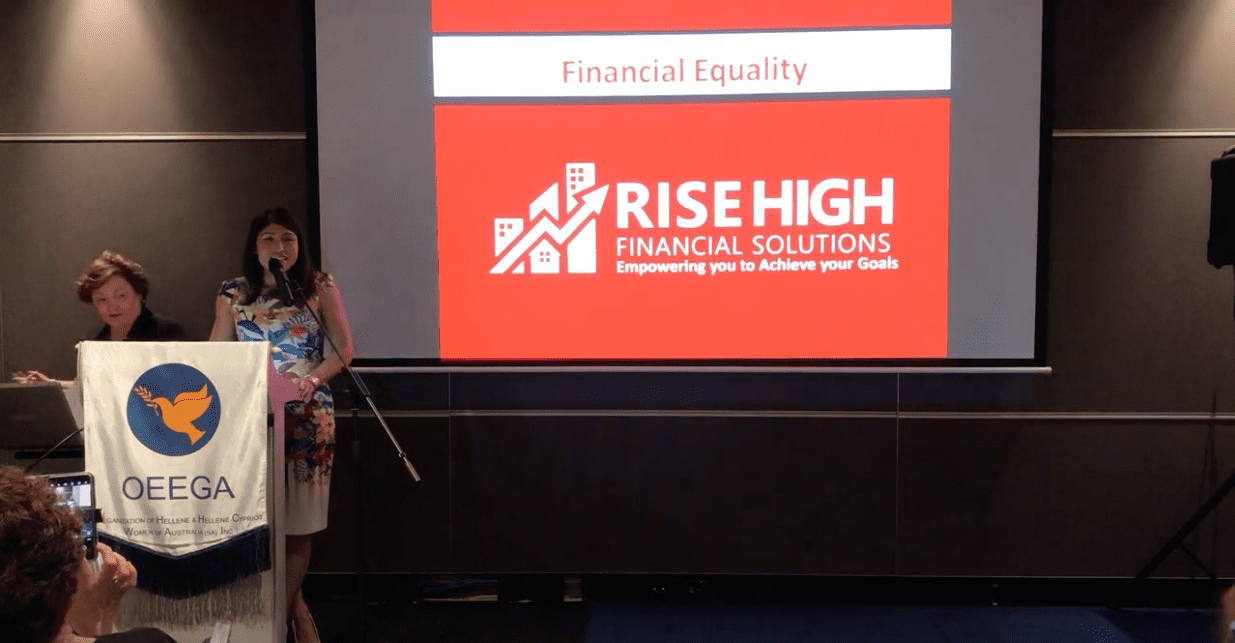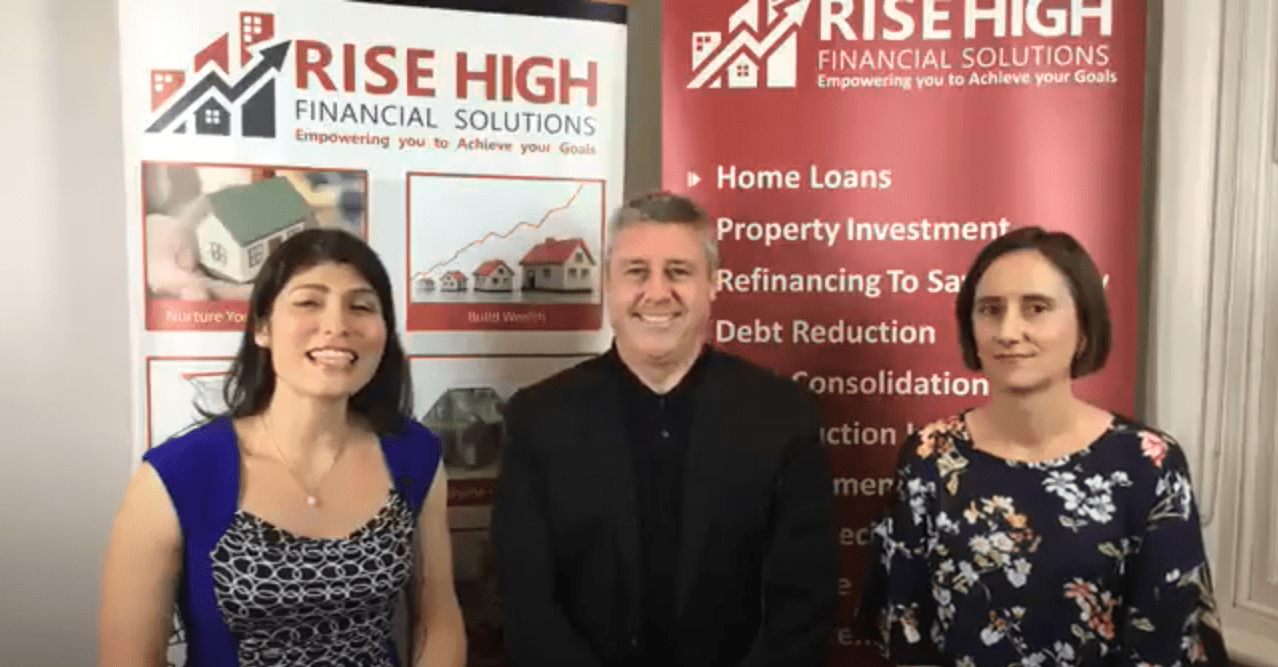As important as it is to get the finance structure right from day one, it is equally important to review your finance structure and products regularly as lending policies and your circumstances change. As an active property investor, you should be reviewing your portfolio at least every 12 months.
To achieve the optimal finance structure, I recommend you implement the following four rules:
- Avoid cross-collateralisation
- Maximise good debt and minimise bad debt
- Get the ownership/tax structure right, and
- Get the right balance of features/flexibility/cost.
Tip #1 – Avoid Cross-Collateralisation
Cross-collateralisation is a term used when a loan is secured by 2 or more properties.
If you have multiple properties and are dealing directly with a bank (or a mortgage broker who does not understand property investment), then it is likely that your loans and properties are cross-collateralised. Banks like cross-collateralising your loans and properties because it gives them extra security and protection and makes it a lot harder for you to access equity in the future, and/or sell or refinance one (or some) of your properties to a cheaper lender.
Unfortunately, the only winner out of a cross-collateralised loan structure is the bank. There are absolutely no advantages for the investor to have a cross-collateralised finance structure, but multiple disadvantages. The main disadvantage is the lack of flexibility to access equity growth easily. In addition to that is the lack of freedom to refinance certain properties to other lenders.
Many people believe that you have to split your lending across multiple lenders to avoid cross-collateralisation. However, this is not entirely true. If you deal with a good mortgage broker who understands property investment, they may be able to help you source a better finance deal if you have your lending with just one lender, whilst still ensuring that you completely avoid cross-collateralisation. There are pros and cons of having multiple lenders vs just one lender, so you will have to balance these up with your mortgage broker to ensure you get the perfect outcome for your situation. Either way, be sure you avoid cross-collateralisation.
Tip #2 – Maximise Good Debt and Minimise Bad Debt
Good debt is debt that enables you to own an income-producing asset that enables cash flow and increases wealth. The interest expense associated with this debt is often tax deductible. Also, the repayments from good debt generally come from the income produced by the asset. Bad debt, on the other hand, is everything else. This includes your mortgage on your principle place of residence, credit cards, personal loans, car loans etc.
As an investor, the key to success in managing your finance is to find ways to minimise your bad debt and maximise your good debt. Many people believe that it is the security property that determines whether the debt is good or bad (e.g. if the debt is secured by an investment property it is good debt and if it is secured by an owner-occupied home then it is bad), but this is not true.
The Purpose of your Loan Decides
It is the purpose of the loan that determines whether it is good tax-deductible debt or bad non-tax deductible debt. For example, you may access some of the equity in your family home to use as a deposit to purchase an investment property.
Despite that this loan is secured against your family home, it should be 100% tax deductible because 100% of the loan proceeds for that particular loan were used towards the purchase of an investment property. Many investors get caught out with this rule when they decide to purchase a new family home and convert their existing home into an investment property.
Often in this situation, the investor will take a loan against the investment property (their old family home) to help with the deposit of the purchase of their new family home. They believe that because they are securing the loan against an investment property it is tax deductible. But, because the purpose of the loan is to purchase a house to live in, this loan is not tax deductible. Given this rule, every time you purchase a new property (whether it be a home or investment property), it is huge advantage if you can have a long-term plan and vision as to what the current and future purpose of that property will be.
Some Good Questions to Ask Yourself:
For example, will the property always be an investment property, or do you plan to move into it in the future? Will your current home be your long-term forever home or more of a stepping stone? If your current home is merely a stepping stone that will be converted to an investment property in the coming years, then our Australian instinct of paying down the debt as quickly as possible will work against you in the future. Whilst I realise that the future can be unpredictable and circumstances can change, if you have a plan for each property when you purchase it, then you will be able to set up the best possible finance structure for that property from the outset that will give you the most effective tax outcome in the long term.
Tip #3 – Get the Right Property Ownership and Tax Structure
Getting the ownership structure right is one of the most important things. You should focus on this every time you purchase a property. The decision of ownership structure will have long-term ramifications, affecting your income tax, land tax, capital gains tax and your asset protection.
It is so important that you get the right advice from the outset. This is because it can be very expensive to fix/change the ownership structure down the track, and you may be up for more stamp duty and expensive capital gains tax.
Click here to read our blog and learn more about Property Ownerships Structures.
Tip #4 – Get the Right Balance of Features, Flexibility and Cost
With so many different lenders and loans to choose from, finding the right loan and finance structure can be confusing. I was amazed when I went from working for a Big 4 bank to running my own mortgage broking business. I have discovered how many different features are available in loan products, how different lenders interpret and offer these features in different ways.
People rush into deciding their lender and loans to meet tight settlement deadlines or get the cheapest rate. However, it is certainly worth spending a little bit of extra time upfront to get the right advice. This would help you choose loan products and a debt structure that will ultimately help you achieve your goals sooner.
Before you choose the right loan with the right features, I recommend you ask yourself the following questions:
- What is the purpose of the loan?
- More specifically, is it personal debt (e.g. a home loan, which is not tax deductible) or investment debt (e.g. a loan to purchase an investment property, which may be tax deductible)?
- Will the purpose of the loan change in the future? (e.g. are you buying a home which you intend to convert to an investment property or vice versa).
- Will you have the capacity to save money over and above your loan repayments and living expenses?
- Approximately how much can you save on a monthly basis?
- How soon do you want to purchase your next property (either home or investment)?
- Do you have any approaching events that you are planning to fund out of savings or your personal cash flow? (e.g. holidays, car purchase).
The answers to these questions will ultimately help you determine the loan features important to you. It will also ensure the loan you choose gives you the ultimate combination of cost, flexibility and tax effectiveness.
Beyond these, looking at making sure you negotiate the right house price for your new property can also come in handy!
Click here to learn more about how we can help you on your property investment journey.





